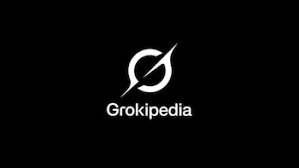
Breaking News
 SpaceX Might Lose Almost No Time for Booster Shell, COPVs and Test Tank Loss
SpaceX Might Lose Almost No Time for Booster Shell, COPVs and Test Tank Loss
 Netanyahu Says Rubio Assured Him Saudi Arabia Will Not Receive F-35s On Par With Israel
Netanyahu Says Rubio Assured Him Saudi Arabia Will Not Receive F-35s On Par With Israel
 Elon Says the Quiet Part Out Loud: AI Will RULE Humans, No More Money, BILLIONS of Robots
Elon Says the Quiet Part Out Loud: AI Will RULE Humans, No More Money, BILLIONS of Robots
 Central Bankers Disagree About Gold
Central Bankers Disagree About Gold
Top Tech News
 Mach-23 potato gun to shoot satellites into space
Mach-23 potato gun to shoot satellites into space
 Blue Origin Will Increase New Glenn Thrust 15-25% and Make Rocket Bigger
Blue Origin Will Increase New Glenn Thrust 15-25% and Make Rocket Bigger
 Pennsylvania Bill – 'Jetsons Act' – Aims To Green-Light Flying Cars
Pennsylvania Bill – 'Jetsons Act' – Aims To Green-Light Flying Cars
 New Gel Regrows Dental Enamel–Which Humans Cannot Do–and Could Revolutionize Tooth Care
New Gel Regrows Dental Enamel–Which Humans Cannot Do–and Could Revolutionize Tooth Care
 Researchers want to drop lab grown brains into video games
Researchers want to drop lab grown brains into video games
 Scientists achieve breakthrough in Quantum satellite uplink
Scientists achieve breakthrough in Quantum satellite uplink
 Blue Origin New Glenn 2 Next Launch and How Many Launches in 2026 and 2027
Blue Origin New Glenn 2 Next Launch and How Many Launches in 2026 and 2027
 China's thorium reactor aims to fuse power and parity
China's thorium reactor aims to fuse power and parity
 Ancient way to create penicillin, a medicine from ancient era
Ancient way to create penicillin, a medicine from ancient era
Elon Envisions Grokipedia As Humanity's Cosmic Knowledge Vault

Speaking at the Baron Investment Conference, Musk likened the project to a "modern-day Library of Alexandria," etched in microfont on stone to safeguard knowledge for future civilizations.
The comments, captured in a viral clip shared on X, underscore Musk's ambition to transcend Earth's fragile data repositories.
"The idea behind this Galactica is to create an open source… distillation of all knowledge… And then we want to create copies of this and distribute these copies throughout Earth, and even put them on the moon and Mars and out of deep space… So in the worst case scenario, future civilization can see what we learned and maybe pick things up from there," Musk said.
Musk's remarks came during an onstage interview with Ron Baron, the 82-year-old founder of Baron Capital, a $45 billion asset management firm known for its long-term investments in growth stocks like Tesla.
The annual Baron Investment Conference, in New York, drew hundreds of investors eager for Musk's insights on everything from electric vehicles to artificial intelligence. Baron, a longtime Tesla shareholder, pressed Musk on xAI's boldest initiatives, leading to the discussion of Grokipedia—currently slated for a rebrand to "Encyclopedia Galactica," a nod to sci-fi icons Isaac Asimov and Douglas Adams.
The exchange highlighted Musk's blend of pragmatism and futurism. Evoking the ancient Library of Alexandria's tragic burning as a cautionary tale, he proposed "literally etch[ing] it in stone" via microfont technology to ensure durability against disasters, wars, or cosmic mishaps.
Grokipedia emerged from Musk's long-standing critiques of Wikipedia, which he has repeatedly called "hopelessly biased" due to activist-driven edits and its role as a foundational data source for AI training.
The project was first teased in September, when Musk announced on X: "We are building Grokipedia @xAI. Will be a massive improvement over Wikipedia. Frankly, it is a necessary step towards the xAI goal of understanding the Universe."
Powered by xAI's Grok AI models, Grokipedia launched in a beta version a month later as an open-source repository of human knowledge—complete with text, audio, images, and video.

 Unbanked In A Connected World
Unbanked In A Connected World

